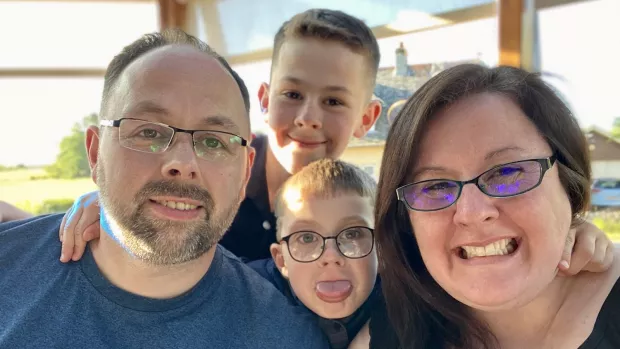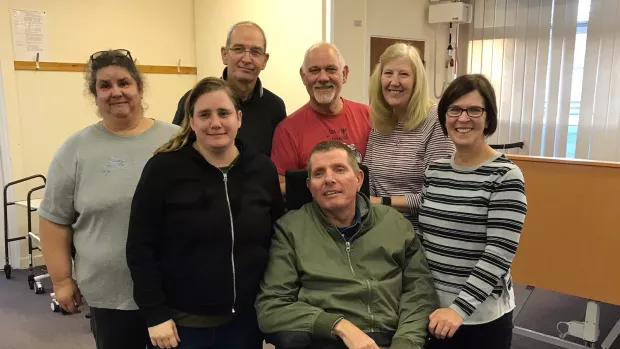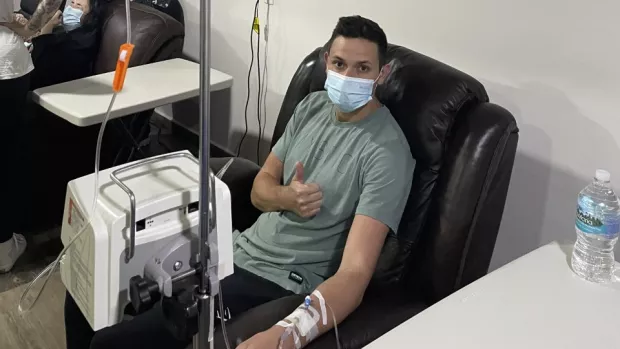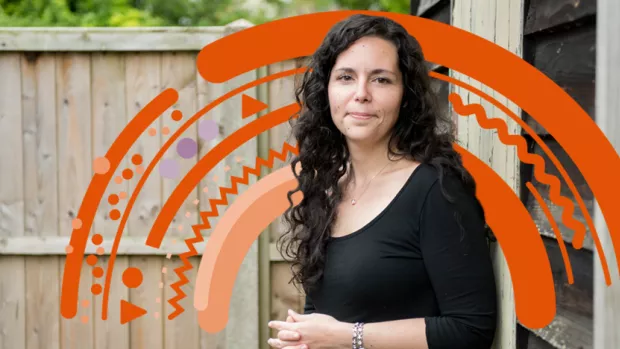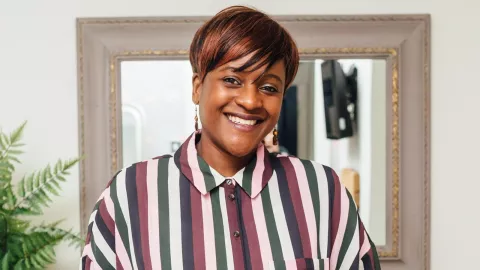
Caring for the carer – Simone Bell
Simone Bell cares for her husband Nikoma, who lives with MS. Together, they support others going through a similar experience. She shares her story and offers tips to fellow caregivers.
In our wedding vows, we promise to love, have and hold our spouse "in sickness and in health". But we don't actually expect to be tested. I was pregnant with our first child when Nik got his diagnosis. To say it was a shock is an understatement!
We were sat in the hospital and when the consultant told us. I got really hot and threw up in the doctor’s office. I had so many questions running through my mind: How do you get it? Will he die? Will our children get it? And what is MS?
I’d heard of MS before because a character in Coronation Street had it, but I had no clue what it was. I had to do my own research.
As the partner of someone living with MS, there’s the shock from the diagnosis. And then there’s coming to terms with how much your own life is going to change. It's tiring, it's stressful, it's frustrating and it's isolating.
Finding a new way
Due to Nik’s balance issues and fatigue, we have to carefully plan everything – from grocery shopping, to days out and holidays. Nik can’t do as much as he'd like to with our daughter, either. Running around in the park would be too physically demanding, for example. I do all the driving now due to Nik’s vision issues. And I take care of the bulk of our household tasks and finances, due to his brain fog and cognitive issues.
When Nik was first diagnosed, I went into a state of denial and I wouldn’t really talk about what was happening. I certainly didn’t tell people Nik had been diagnosed. But the stress of bottling everything up really affected my mental health. And so, little by little, I began speaking to others, starting with close family and friends.
Nik and I began talking about the importance of building a community of people who understood what we were going through, individually and as a couple. We came up with the idea of starting an Instagram page, which we use to post about our experiences. This has been a great way to meet others living with MS.
Follow Simone and Nikoma on Instagram
Adjusting roles
One of the difficult things about being a carer is that you love the person you’re caring for. But you might also be grieving the person they once were and the life you had. As selfish as it may sound, sometimes I wish people would ask about the carer, not just about the person with the condition.
I never used to call myself a carer, but I now see that’s exactly what I am, so I use the term. I decided to use my experience and transferable skills to be the support I was unable to find for myself. I’m now a qualified coach and I focus on supporting other family caregivers. I’ve also joined the MS Society Leaders by Experience programme to help support carers and loved ones of people with MS.
So often the carer’s voice isn't heard and yet MS affects us too. I always say “I don’t have MS, but I live with MS!” MS is no respecter of persons – it doesn’t discriminate and therefore services and support shouldn’t either.
Read more about support for carers
Simone’s top tips for caregivers
1. Take breaks
As difficult as this may be, be sure to schedule in time for yourself. It may be 10 minutes, but something is better than nothing.
2. Accept offers of help
You are not super-human, so don't try to be! This is something I struggled with for a long time (and it's still a work in progress). But getting support where possible is key to your resilience.
3. Look after your physical and mental health
I go to the gym as often as I’m able to. Not just for my fitness, but because I’ve realised it helps my mental wellbeing, too. Find something that works for you and your schedule.
4. Stay connected to friends and family
It can be very easy to become isolated as a caregiver, which can lead to poor mental health.
5. Learn to say 'no'
Caregiving is demanding, so learn to say ‘no’ to additional responsibilities, which will end up leaving you stressed and overwhelmed. Do not feel guilty about it!
And you can find out more about Simone’s coaching session on her website. Anyone who contacts Simone and quotes ‘The MS Society’ will get one complimentary coaching session.

